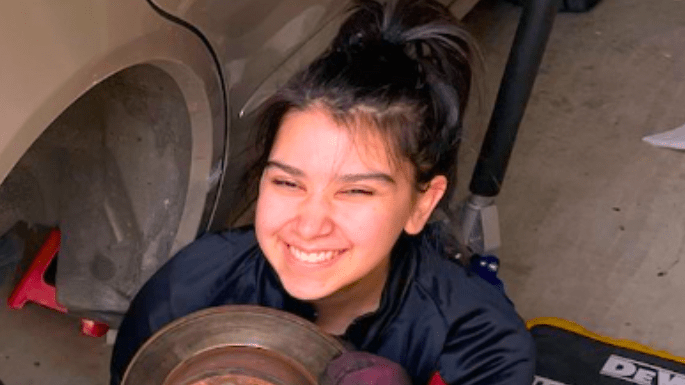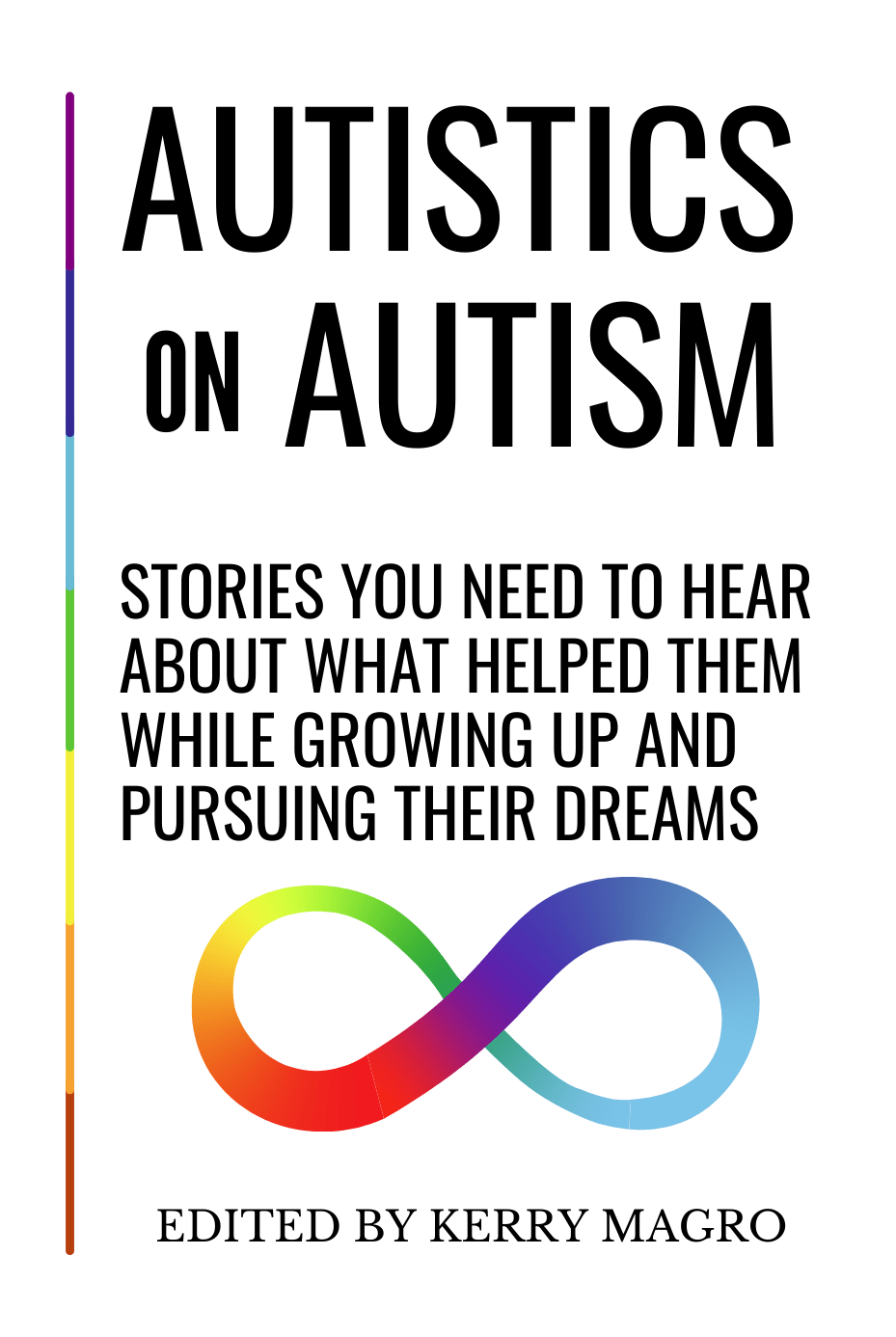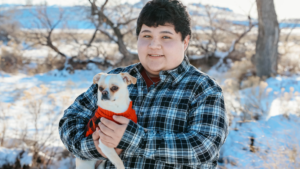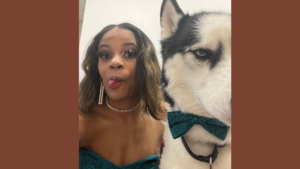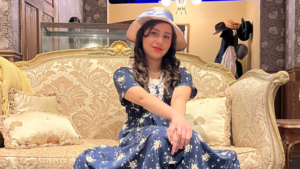This guest post is by Veronica Nunez, a young woman diagnosed with autism at 4 who attends Austin Community College. Veronica was diagnosed is applying for the Spring 2023 Making a Difference Autism Scholarship via the nonprofit KFM Making a Difference started by me, Kerry Magro. I was nonverbal till 2.5 and diagnosed with autism at 4, and you can read more about my organization here. Autistics on Autism: Stories You Need to Hear About What Helped Them While Growing Up and Pursuing Their Dreams, our nonprofit’s new book, was released on March 29, 2022, on Amazon here for our community to enjoy featuring the stories of 100 autistic adults.
When I was younger, I was confronted with numerous developmental impediments and medical complications. These concerns rendered my success an elusive goal because of Autism, ADHD, Dyscalculia, PANDAS, and Epilepsy, which subjected me to the ostracization of my peers and a profound sense of dehumanization. Faced with this daunting reality, I was forced to devise coping mechanisms and strategies that would enable me to surmount these challenges. Thanks to the support and resolute motivation instilled in me by my loved ones, I have managed to overcome the obstacles that once hindered me, paving my way to a brighter future.
During my formative years, my inability to articulate my thoughts verbally until the age of 1.5 left me in a vulnerable state, characterized by pronounced sensory difficulties. My mother and I resorted to communicating through signs and sounds to overcome my speech impediments, and for almost a decade, I received speech and occupational therapy to enhance my communication skills with my family. The tremendous support I received from my family during this challenging period not only facilitated communication but also proved instrumental in improving my academic performance.
Upon entering middle school, I embarked on an arduous journey of experimentation to discover unconventional yet effective methods for accelerating my learning process. This was because I learned differently than my peers did. I explored sensory and emotional approaches, which enabled me to form meaningful associations with academic concepts. For instance, I would draw symbols on my thigh with my finger as I went through a concept, thereby imprinting a tactile sensation that correlated with the concept, thus enhancing my recall. Additionally, I found success in teaching my sister through the use of humor, which facilitated a positive emotional connection to the subject matter, further aiding my retention of the material.
Despite the progress I had made in finding effective learning methods, my struggles with Autism and perfectionism continued to pose challenges in completing assignments. As an Autistic, my desire for organization and completeness clashed with the impulsivity and distractibility that came with ADHD. This often resulted in a cycle of frustration and exhaustion for me. However, I eventually found a solution that proved to be transformative; I realized that what was missing was a fulfilling extracurricular activity to channel my energy and passion into. Playing the clarinet initially filled this void, but I soon realized it wasn’t a passion. Nevertheless, the experience of hearing music and performing ignited a newfound hunger within me, leading me to explore other extracurricular opportunities that would provide a deeper sense of fulfillment.
While I was seeking a new extracurricular activity that would bring me joy, I discovered a passion that would change me for the rest of my life: color guard. From the moment I picked up a flag, I felt as though I’d found my purpose. The rigorous physical demands of color guard pushed me to my limits and challenged me in ways I had never experienced before. The rush of adrenaline I felt when performing was addicting, and I knew that this was something I wanted to pursue further.
It became mandatory for me to have the ability to integrate my body in versatile ways; my motor skills and attention span made it extremely difficult. When I danced and tossed my flag, I also had to pay attention to how I performed for the audience, it was excruciating. The amount of focus and coordination I had to rely on became second nature. I’d managed to conquer my ADHD hyperfocus and motor skill struggles by concentrating on how much I strived for achievement. Though contradictory, staying active aided me in focusing when I needed to.
Through many performances, I adapted to presenting myself in conspicuous manners in such a way that, at the time, would be impossible to contemplate. I learned to grin, smirk, and be eccentric during performances. Unfortunately, though I applied these happenings to social interactions, my team treated me as an outcast, I was nothing but an invisible spirit to them. I would have no bus buddy and no study support, and I always ate alone. As inhumane as it was, I wouldn’t let such petty beings take charge of my life. The loneliness and torturous treatment I felt from those around me were traumatizing, but also invigorating. I had to be vigilant and not stray from my path to success.
During these years I also began to explore what my desired career path was going to be. Such discoveries led to chess, coding, and robotics. Through chess, I obtained the ability to assess and prognosticate an individual’s actions. I needed to be intuitive to triumph in my chess games; no victories were to be achieved by not analyzing my opponent. Applying such skills to my communication dilemma proved to be invaluable; these skills improved as did the confidence within me.
While some may argue that such achievements are incomprehensible, I’ve managed to conquer much of the adversity that once plagued me. Although I’m not completely cured of my struggles with math, social cues, and unrefined motor skills, nothing can diminish my resolve. I am confident that there is much more in store for me in life to aid in my growth, but that time has not yet arrived. My steadfast determination has kept me on the path to success, and I have never been, nor will I ever be, swayed by any obstacle.
Follow my journey on Facebook, my Facebook Fan Page, Tiktok, Youtube & Instagram.
My name is Kerry Magro, a professional speaker and best-selling author who is also on the autism spectrum. I started the nonprofit KFM Making a Difference in 2011 to help students with autism receive scholarship aid to pursue post-secondary education. Help support me so I can continue to help students with autism go to college by making a tax-deductible donation to our nonprofit here.
Autistics on Autism: Stories You Need to Hear About What Helped Them While Growing Up and Pursuing Their Dreams was released on March 29, 2022 on Amazon here for our community to enjoy featuring the stories of 100 autistic adults. 100% of the proceeds from this book will go back to our nonprofit to support initiatives like our autism scholarship program. In addition, this autistic adult’s essay you just read will be featured in a future volume of this book as we plan on making this into a series of books on autistic adults.

